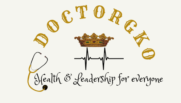Critical Thinking: Why it’s Essential for Everyone and Its Connection to Well-Being
In today’s fast-paced, information-driven world, the ability to think critically has never been more essential. Critical thinking is not just a skill reserved for academics or professionals; it is a fundamental aspect of our everyday lives, influencing the decisions we make, how we process information, and ultimately, our well-being. This article explores the importance of critical thinking for everyone and how it connects to individual well-being.
What Is Critical Thinking?
Critical thinking refers to the ability to analyze, evaluate, and synthesize information in a thoughtful and reasoned manner. It involves questioning assumptions, identifying biases, and considering alternative perspectives before making decisions or forming opinions. Unlike reactive thinking, critical thinking encourages individuals to step back, consider all options, and engage in deeper, more reflective thought.
Why Critical Thinking Is Important for Everyone
- Improved Decision-Making
Critical thinking helps you make more informed and rational decisions. By questioning assumptions and evaluating evidence objectively, you are less likely to be swayed by misinformation or emotional reactions. Whether you are making personal choices or professional decisions, critical thinking provides clarity and a deeper understanding of the potential consequences, leading to more confident and effective outcomes. - Enhanced Problem-Solving Skills
Life is filled with challenges and obstacles, both big and small. Critical thinking allows you to approach problems with a clear, logical mindset. By breaking down complex situations, considering various solutions, and weighing their pros and cons, you can find innovative and practical solutions to any problem you face.
3. Better Communication and Relationships
In both personal and professional contexts, critical thinking improves communication skills. By listening actively, asking thoughtful questions, and considering different viewpoints, you can engage in more meaningful and productive conversations. This fosters mutual respect and understanding, which is crucial for building strong, positive relationships with others.
4. Increased Creativity and Innovation
Critical thinking involves questioning the status quo and considering new ways of thinking. This mindset encourages creativity and innovation, which are essential in an ever-changing world. Those who can think critically are more likely to come up with original ideas, solve problems creatively, and adapt to changing circumstances effectively.
5. Protection Against Cognitive Biases
Humans are naturally susceptible to cognitive biases that can cloud judgment and lead to faulty decision-making. These biases include confirmation bias, where you favor information that supports your existing beliefs, and anchoring bias, where you rely too heavily on the first piece of information you encounter. Critical thinking helps to identify these biases, enabling you to approach situations more impartially and make better decisions.
Read also: Challenges that Affect Working Women’s Mental Health
Critical Thinking and Its Connection to Well-Being
Critical thinking doesn’t just improve your intellectual capacity; it has a profound impact on your overall well-being. Here’s how:
- Reduces Stress and Anxiety
One of the ways critical thinking positively affects well-being is by reducing stress and anxiety. When you approach problems with a critical mindset, you gain a sense of control over your decisions and actions. Rather than feeling overwhelmed by life’s uncertainties, you can break down complex issues into manageable parts, make informed decisions, and feel more confident in your choices. This reduction in uncertainty can lower anxiety levels and contribute to a calmer, more balanced state of mind.
2. Enhances Emotional Intelligence
Emotional intelligence is the ability to understand and manage your emotions and the emotions of others. Critical thinking plays a vital role in this by fostering self-awareness and empathy. When you engage in critical thinking, they are better equipped to reflect on their emotions, understand the motivations behind others’ behavior, and make thoughtful, compassionate responses. This enhances emotional intelligence, which is linked to better mental health, stronger relationships, and improved overall well-being.
3. Promotes Personal Growth and Self-Reflection
Critical thinking encourages you to reflect on your values, beliefs, and actions. This process of self-reflection leads to personal growth and a deeper understanding of oneself. When you think critically about your goals, aspirations, and decisions, you can identify areas for improvement and work towards becoming a more authentic and fulfilled individual. This ongoing process of self-improvement boosts self-esteem and contributes to a more positive outlook on life.
4. Fosters a Growth Mindset
Critical thinking fosters a growth mindset, the belief that abilities and intelligence can be developed through effort and learning. When you think critically, you embrace challenges as opportunities for growth, rather than threats to your competence. This attitude encourages resilience, reduces feelings of helplessness, and empowers individuals to take proactive steps toward improving their lives. A growth mindset is linked to higher levels of satisfaction and well-being, as individuals feel more capable of achieving their goals.
5. Supports Healthy Lifestyle Choices
Finally, critical thinking plays a key role in making healthier lifestyle choices. From evaluating the benefits of physical exercise to understanding the importance of mental health, critical thinking helps you make well-informed decisions that enhance your overall well-being. It allows you to sift through health advice, weigh evidence, and choose the best course of action for your body and mind, promoting long-term health and happiness.
Read also: Powerful habits that will change your life
How to Develop Critical Thinking Skills
While critical thinking is a natural ability, it can be developed and enhanced with practice. Here are a few ways to improve your critical thinking skills:
- Ask Questions: Don’t take information at face value. Ask questions to understand the underlying assumptions and reasoning.
- Seek Different Perspectives: Challenge your own beliefs by considering other viewpoints and ideas. This broadens your understanding of complex issues.
- Evaluate Evidence: Be selective about the information you consume. Evaluate the credibility and relevance of sources before drawing conclusions.
- Practice Reflection: Take time each day to reflect on your thoughts, actions, and decisions. This will help you identify areas for improvement and foster self-awareness.
- Engage in Problem-Solving: Actively look for opportunities to solve problems creatively and critically. The more you practice, the stronger your critical thinking skills will become.
Take away
Critical thinking and intellectual health are deeply intertwined. Critical thinking sharpens cognitive abilities, promotes lifelong learning, encourages adaptability, and enhances problem-solving skills. By regularly engaging in critical thinking, individuals keep their minds agile, foster creativity, and maintain a flexible, open-minded approach to learning and growth. These mental habits not only improve intellectual functioning but also contribute to overall well-being, reducing stress, promoting emotional balance, and preventing cognitive decline.
By practicing critical thinking, you not only enhance your cognitive abilities but also contribute to a healthier, more balanced version of yourself. So, start questioning, reflecting, and thinking critically—your mind and well-being will thank you for it!
Self development process for personal and professional growth
Assertiveness, a way to develop EQ!! tips to develop Assertiveness
Decision making- a crucial leadership skill- Podcast with Gajalakshmi Bhuvanarajan
Attitude is Everything To know about attitude!!
Share this post: on Twitter on Facebook on LinkedIn





